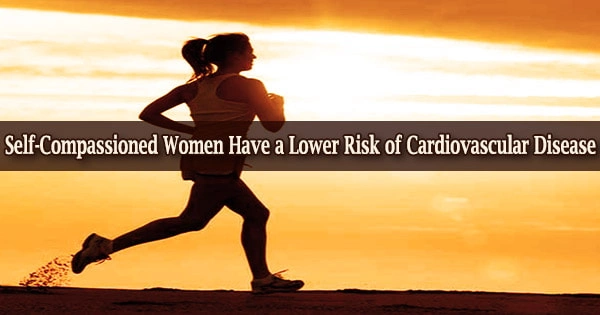Despite what some may believe, being kind to oneself is not a New Age fad, and evidence backs it up.
Regardless of other established risk factors such as high blood pressure, insulin resistance, or cholesterol levels, middle-aged women who exercised self-compassion had a decreased risk of developing cardiovascular disease. Researchers from the University of Pittsburgh published their findings in the journal Health Psychology today.
“A lot of research has been focused on studying how stress and other negative factors may impact cardiovascular health, but the impact of positive psychological factors, such as self-compassion, is far less known,” said Rebecca Thurston, Ph.D., professor of psychiatry, clinical and translational science, epidemiology, and psychology at Pitt.
Adults in the United States are becoming more interested in mindfulness activities such as meditation. People are increasingly turning inward to help control their mood and emotions as a result of a barrage of stressors at work and in their personal lives.
The pressures have increased during the epidemic, particularly for women. Women are disproportionately affected by the dragging pandemic, according to research from various organizations around the world. They care for children and elderly relatives, and they are frequently the ones to care for other adults, as women make up the majority of the nursing workforce in the United States.
A lot of research has been focused on studying how stress and other negative factors may impact cardiovascular health, but the impact of positive psychological factors, such as self-compassion, is far less known.
Rebecca Thurston
Counsellors and clinical psychologists frequently recommend mindfulness and self-compassion to clients who are suffering with chronic stress. These approaches have been proven to help with anxiety, irritation, and even moderate depression.
But do these practices have any physiological effects on the body?
Thurston and her colleagues enrolled nearly 200 women between the ages of 45 and 67 in order to address that question. The women were asked to rate how often they suffer emotions of inadequacy, whether they are regularly disappointed by their self-perceived defects, and whether they give themselves care and tenderness through difficult life events on a short questionnaire.
The women also had an ultrasound of their carotid arteries, which are key vessels in the neck that deliver blood from the heart to the brain.
Women who scored higher on the self-compassion scale had thinner carotid artery walls and less plaque buildup than women who scored lower on the scale. Years later, these markers have been associated to a reduced risk of cardiovascular illness, such as heart attacks and strokes.
Even when the researchers took into account behaviors and other psychological factors that could influence cardiovascular disease outcomes, such as physical activity, smoking, and depressed symptoms, the findings remained consistent.
“These findings underscore the importance of practicing kindness and compassion, particularly towards yourself,” said Thurston. “We are all living through extraordinarily stressful times, and our research suggests that self-compassion is essential for both our mental and physical health.”
Megan Fritz, Ph.D., Yuefang Chang, Ph.D., and Emma Barinas-Mitchell, Ph.D., all of Pitt, and Pauline Maki, Ph.D., of the University of Illinois at Chicago, are also authors on this work.
This research was supported by the National Institutes of Health’s (NIH) National Institute on Aging (RF1AG053504), the NIH Heart Lung and Blood Institute (2K24HL123565), and the Pitt Clinical and Translational Science Institute (NIH Grant UL1TR000005).





